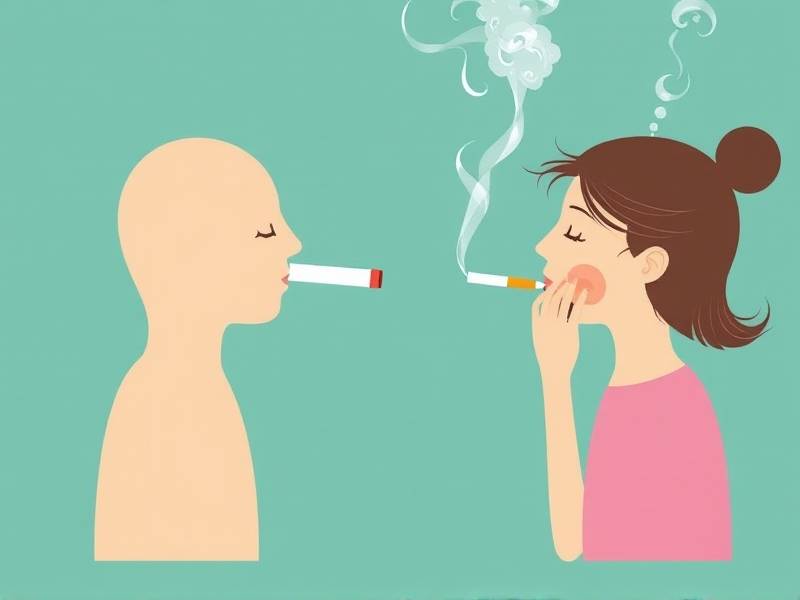Why Do You Feel Sick After Quitting Smoking? The Science Behind the Symptoms
Understanding the Science Behind the Post-Quitting Smoking Illness: Why You Feel Sick and How to Cope
Introduction: Quitting smoking is a significant decision that can lead to numerous health benefits. However, many individuals experience unpleasant symptoms after they quit. This article delves into the science behind these symptoms, providing insight into why you might feel sick after quitting smoking and how to cope with these challenges.
I. The Body's Response to Quitting Smoking

-
Nicotine Withdrawal When you stop smoking, your body experiences nicotine withdrawal. Nicotine is an addictive substance that affects the brain's reward system, leading to cravings and withdrawal symptoms when it's not present.
-
Detoxification Process The body undergoes a detoxification process as it eliminates nicotine and other harmful chemicals from your system. This process can trigger various symptoms, such as fatigue, irritability, and headaches.
II. Common Symptoms of Post-Quitting Smoking Illness
-
Headaches Headaches are a common symptom of quitting smoking due to nicotine withdrawal and dehydration. Staying hydrated by drinking plenty of water can help alleviate this symptom.
-
Irritability Irritability is another common symptom caused by nicotine withdrawal. Engaging in stress-reducing activities such as exercise or meditation can help manage this symptom.
-
Fatigue Fatigue is often experienced after quitting smoking due to changes in sleep patterns and energy levels. Establishing a regular sleep schedule and incorporating physical activity into your routine can help combat fatigue.
-
Insomnia Insomnia can occur as your body adjusts to lower levels of nicotine. Creating a relaxing bedtime routine and avoiding caffeine or alcohol before bedtime may improve sleep quality.
III. Coping Strategies for Post-Quitting Smoking Illness
-
Nicotine Replacement Therapy (NRT) NRT products like gum, patches, lozenges, or inhalers can help alleviate nicotine withdrawal symptoms by providing controlled doses of nicotine without the harmful effects of smoking.
-
Behavioral Techniques Seeking support from friends, family, or support groups can provide encouragement during your quit journey. Additionally, adopting new habits or hobbies can distract from cravings and negative thoughts associated with quitting smoking.
-
Medication Options In some cases, prescription medications may be recommended by a healthcare professional to help manage post-quitting smoking illness symptoms.

Conclusion: Feeling sick after quitting smoking is a common challenge faced by many individuals who have made the decision to quit their tobacco habit. Understanding the science behind these symptoms and implementing coping strategies can make this transition more manageable and less daunting. By arming yourself with knowledge and resources, you'll be better equipped to overcome these obstacles on your path to a smoke-free life.
